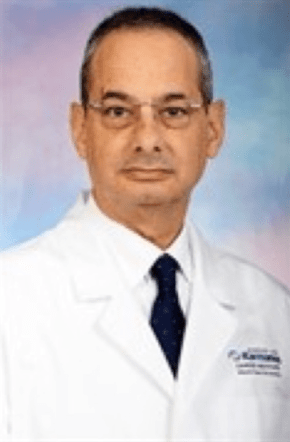Testicular Cancer: Highly curable if caught in time through self-examination
April 8, 2021
By: Michael Cher, M.D., Wayne Health Department of Urology
Testicular cancer is of special concern to young men – an age group that does not commonly think about cancer. In fact, testicular cancer is the most common type of cancer in men ages 15-35. It is less common in middle-aged and older men.
Fortunately, testicular cancer is highly curable, even in advanced stages. Although this cancer affects a man’s “private” area, if there is a suspicion of testicular cancer, it is important to seek medical care promptly so as not to lose an opportunity to be cured.
In the U.S., more than 9,400 cases are diagnosed each year, but only about 440 males die of testicular cancer. According to the American Cancer Society, the average age of diagnosis is about age 33.
April is Testicular Cancer Awareness Month – a good time to be reminded of and to check for symptoms of testicular cancer.
The most common symptom of testicular cancer is a small, painless lump in a testicle or a slightly enlarged testicle. It’s important for men to become familiar with the size and feeling of their normal testicles, so that they can detect changes if they occur.
Most testicular cancer awareness organizations recommend that men conduct regular self-exams. Examination is easy. It is best done when you are in the shower with soapy hands. The normal testicle is egg-shaped, slightly firm and with a smooth surface. Testicular cancer can feel like a hard lump or firm to the touch, much firmer than a normal testicle. A cancerous mass can take up a small portion of the testicle and feel like a marble, or in more advanced cases, it can take over the entire testicle and feel like a hard, lumpy rock.
In advanced testicular cancer, cancer cells can spread to lymph nodes deep in the abdomen or even other organs. This type of spread can be seen on routine CT scans. Even at advanced stages, testicular cancer can be highly curable.
Wayne Health physicians and providers in urology, radiation oncology, medical oncology, pathology, and radiology work together to plan appropriate treatment for men with testicular cancer. We offer a full range of treatments, from minor surgeries to more complex combinations of surgery, radiation and/or chemotherapy. Wayne Health physicians work together as a multidisciplinary team to provide patients with the best, most comprehensive urology care.
To set up an appointment with an expert Wayne Health physician or provider, visit our website or call 877-929-6342.
